|
Thank you to Michael M. for sharing his story about converting to electric from oil and the costs savings.
After attending a Town-sponsored webinar on Air Source Heat Pumps (ASHP), we contacted Abode Energy Management to set up a personal Zoom meeting. Abode spoke to us at length about our particular situation: a 100-year-old home with oil heat and radiators, (no ducting or air conditioning), and discussed what solutions might be available to us. We did learn that we would need to upgrade our electrical system from a 100 AMP to a 200 AMP service, and we worked with an excavator, an electrician, and the Town to make that happen. This was less complicated than it sounds. Abode then directed us to the Town's website for a list of approved vendors for ASHPs, and we contacted two of them. Both came to our home and provided a detailed installation proposal and quote. Each vendor proposed unique configurations and different equipment manufacturers. Abode reviewed both proposals to ensure they would be sufficient to heat and cool our home - with no backup system. While Abode deemed both proposals would do the job, they helped us compare them, and even tweaked them, so we felt comfortable moving forward. We chose Endless Energy to install an LG system with two heat pumps. Our first floor has ductless floor units, (as we were sensitive to maintaining the character of our home), the second floor is a ducted system with vents in the ceiling and the air handler in the attic. Our install was completed in December of 2022. We have been very pleased with our conversion to electric from oil. The units are quiet and remote-controllable. Our home maintained a comfortable temperature throughout the past two winters, and it was pure joy to turn on the AC last summer, vs. having to lug heavy, (and noisy and energy-inefficient), window units down from the hot attic. Many people had suggested we keep a "back-up" system for cold days, but with our two heat pumps that has not been necessary. After a severe cold spell two winters ago when the temperature dipped below -10 degrees for two nights in a row and we stayed warm, we removed our furnace, oil tank and radiators. (This required us to replace our oil-powered hot water heater with a heat-pump hot water heater. Abode again assisted us, and we decided on a 55-gallon Bradford White model; we've been very pleased with its performance.) A side benefit of removing the radiators was freeing up lots of floor space in our home. This made a big difference in every room, but especially in our dining room and in a narrow passageway. Finally, the cost savings have been even more dramatic than we had planned. Our energy bills are coming in at less than half of what we have been paying, thanks in part to Wellesley's favorable electric rates, and the high cost of oil. We also realized further savings by discontinuing the insurances on the oil tank, the annual furnace maintenance, and annual chimney cleaning. Abode also assisted us in claiming $10,000 in rebates. Suffice it to say it was a good installation experience all around thanks to the Town, Abode, and Endless Energy, and it's been a great fossil-free solution for heating and hot water, with the added bonus of air conditioning, for our historic home. Big thanks to Brian Hodgson - Newton resident & Green Newton board member - for sharing this story.
With all of the crazy weather and news of climate change, a lot of people are looking at how they can make an impact. Ensuring our homes have less of a carbon footprint is one of the biggest actions we can take – namely better insulation, using heat pumps, and installing solar panels on the roof. I am in the middle of a project to install geothermal heat pumps in my home, in part because I care deeply about doing something about climate change. (I’ll share some more information on that project in another article.) I live in a neighborhood of old Victorian homes in Newton, and these older homes certainly present challenges to retrofitting with new technologies. For example, installing air source heat pumps with ducting may require opening up walls, mending old lathe and plaster walls, and pulling out the original heating system with their steam or hot water radiators. However, when I took a walk down my street a couple of weeks ago, I was pleasantly surprised to see that a number of my neighbors had recently installed heat pumps. I was curious as to their motivation: was it driven by a desire to be more climate friendly or were there more practical drivers? To find out, I visited two of my neighbors a couple of weeks ago to ask why. Tanya and David For my neighbors Tanya and David, the key driver was comfort in the home and reducing their electric bills. They had lived without central air conditioning for a number of years, but last summer it was almost intolerably hot in their house. The in-window air conditioners they had been using were noisy and the electricity costs were high. When they learned about the incentives from Mass Save, which can be up to $15,000 to put in heat pumps, they realized it would be a fantastic investment– and it would also improve the comfort of their home. Since air source heat pumps work to both heat and cool a home, they would not need a separate air conditioning system. As part of the incentive process, they were required to get a home energy audit and subsequently had to beef up their home’s insulation levels. Though the base estimated cost of insulation was $8000, over $7000 of that was covered by incentives, and their out of pocket cost was reduced to about $1000. Susan and Michael The second set of neighbors I visited, Susan and Michael, outlined that they had bought the house a couple of years ago and were looking at a number of ways they could make it more energy efficient. While they wanted to make their house less dependent on fossil fuels, attractive financial incentives and comfort in their home were also key drivers in their decision to install a heat pump. As part of their overall evaluation, they looked at a number of options, including upgrading the windows, adding solar, and installing heat pumps. Upgrading the windows turned out to be quite expensive, especially if they wanted to keep the character of the Victorian home, making them hesitate. At the same time, the old air conditioning system they had inherited was on its last legs and would require a large investment for a new one. Thinking ahead to the future, it made more sense to replace it with a heat pump system that could give them both heating and cooling instead of installing another air conditioning system. This reasoning, plus the great financial incentives, made installing a heat pump a great first step in their overall energy renovation plan. Comfort and Saving Money are Key Motivators The $15,000 rebate offered by Mass Save, along with an interest free loan, were critical in getting both families over the hump. Tanya said, “With the interest free loan– we pay $200 a month–it’s almost free money.” In addition, they will also continue to benefit from lower heating and cooling costs through the life of the system. So, while we all have a desire to make an impact on climate change and reduce our carbon footprint, the more practical needs of comfort and saving money are often the reasons why people make the decision to change to heat pumps. Either way, it’s a win-win for everyone. If you are interested in learning more about getting a heat pump for your home click here. Not sure where to start? Contact a no cost Wellesley Energy Coach today. You are not alone.
There are numerous ways you can reduce your energy use as the cooler months arrive. Look for things you can do here as well as the suggestions below that have no costs associated with them.
We realize it's the summer and ironically we are talking about ice dams. Many of us have unfortunately experienced them, including Teri and Jamie Ebersole here in Wellesley. Over the last several years, they did piecemeal projects to protect themselves from recurring ice dam damage. However the dams highlighted to them the increasing severe weather due to climate change. Thus, when they decided to renovate their kitchen, they took a hard look at the resiliency of their home. In the end, they spent a fair amount of their renovation budget on aspects of their home that will make their family home more resilient.
What does that mean? Climate resilient buildings are built, or retrofitted, to withstand severe storms and natural disasters. The Ebersoles wanted their 1940 colonial – gone farmhouse – home to withstand extreme weather. They interviewed a few architects and builders and went with Wellesley’s Kraus Associates. After much research, and discussions with Abode and other energy efficiency experts, the Ebersoles now have a beautiful renovated, healthy and resilient home they are proud of. This all turned out to be a valuable investment as well. The last 2 months they have only paid $10 a month for all of their electric cooking, heating/cooling, driving, laundry needs! How are they doing this? They moved to electrical, high efficient systems, and fully insulated and weatherized their home:
They still have their gas-fired tankless water heater, since it was newish at the time of renovation, but that is the only gas in their home. They will likely replace it with an electric air-source heat pump water heater at its end of life. Since they have a family member with lung challenges, they are very happy to minimize the amount of unhealthy natural gas in their home. “We love our house and want to stay here a long time, so it made sense to make it healthy, resilient and sustainable for the long-term.” Curious who they used? See below:
Big News!!
Both Wellesley’s Municipal Light Plant and the state’s MassSave Program have increased the amount of money a homeowner can get for home energy efficiency improvements. MASS SAVE REBATES If you live in a one to four unit home and get a bill from National Grid (for example, if you heat your home with natural gas or you have a gas fireplace or stove), then you are eligible for the larger rebates from MassSave. Before you can qualify for these rebates or incentives, you must schedule and complete a no-cost home energy assessment with an authorized Mass Save® home assessment contractor such as HomeWorks. Special financing options are also available through Mass Save®, including a” HEAT Loan”: 0% financing for qualified individuals. WELLESLEY MUNICIPAL LIGHT PLANT (WMLP) REBATES If you are NOT a National Grid customer, the WMLP’s new rebates are for you. The WMLP also offers a no-cost Home Energy Audit if you heat with oil, electricity or propane. Call 888-772-4242. Read on for specifics. WMLP Insulation and Air-Sealing Incentives - 50%, up to $1,500 max. for contractor installed insulation, following a home energy audit. Only for homes which are converting from oil heat to electric heat pumps. WMLP Heating & Cooling Rebates Air-source heat pumps: Up to $5,000 Only for MLP customers who currently heat with oil,electricity or propane. Contact [email protected] for requirements. Pre-approval by Abode required. Integrated controls: $100 per, up to $400 Wireless-enabled thermostats: 50% up to $125 Electric Heat Pump Water Heaters: @ UEF≥ 3.2: $500 WMLP Rebates for EnergyStar® Appliances Dehumidifier $50 Refrigerator $50 Front-loading clothes washer $150 Dishwasher $50 Conversion of range or cooktop: $500 - gas to induction Conversion of range or cooktop: $100 - electric to induction Replace gas clothes dryer - with heat pump clothes dryer $250 Replace electric dryer - with heat pump clothes dryer $100 WMLP Additional Rebates Electric panel upgrade $750 Level 2 Electric Vehicle Smart WiFi charger 50%, up to $350 Electric lawn mower $75 Electric landscaping equipment $25 Guess what, there may be Federal Tax Incentives too for home energy efficiency upgrades.Go to Energy Star for details and availability. 2022 is here and you want to know what little old you can do for the climate.
Good news! There is so much YOU can do. Click here for ideas. Email us at [email protected] with stories of your successes, tips and tricks and more. Interested in Cost and Energy Savings on Heating and Cooling? Hear from Experts Dec. 9th 7pm11/30/2021
Due to broad interest, Wellesley’s Municipal Light Plant has extended its pilot “Clean Comfort” program through June 30, 2022. Wellesley residents have been taking advantage of this program which offers personal, expert coaching as well as financial rebates to move to air source heat pumps. To learn more about this program and air source heat pumps, join a discussion with experts and users on December 9th at 7pm.
Register here for this 1 hour Zoom meeting to learn how you can save money and lower your carbon footprint. “The no cost coaching offered by the Town’s consultants Abode Energy Management, in combination with the incentives, made this transition easy,” said a Wellesley resident. If you are considering replacing oil furnaces or air conditioners, you may be particularly interested in this program. For those that have air source heat pumps, learn how to use them to their full capacity as well. View the Air Source Heat Pump Rebate Program Requirements. Can't make this event? You can watch the May 19th webinar here or the November 9th here. Have questions? Call 781-235-7600 or email [email protected]. Sustainable Wellesley is hosting this free webinar. The Town of Wellesley has a goal to reduce emissions to net zero by 2050, and buildings play a big part in reaching that goal as they emit 56% of our greenhouse gas emissions (58% of that comes from the residential sector). Learn how you can help Wellesley reach its goal, while lowering your heating and cooling costs and be more comfortable. Join the Zoom TONIGHT at 7.30pm to hear one woman's story how she walked away from tailpipe emissions and is loving her electric car. Its a great way you can take real action.
Register here. Sharon Kirby, a member of Sustainable Wellesley, generally tries to “do the right thing.” When it was time to buy a new car, she did her homework, ultimately choosing an Electric Vehicle (EV). She is so thrilled with her choice that she offered to share her research with us in this simple half-hour presentation. She has some surprising discoveries about Electric Vehicles and Hybrids. There will be plenty of time for questions afterward. For car lovers, prepare to get excited and know you will be defending the planet as well. Believe it or not, 43% of Wellesley’s carbon emissions are due to the use of gas and diesel vehicles that rely on internal combustion engines. In other words, transportation in and around Wellesley is one of the single largest cause of greenhouse gases in our town. So when you drive; drive electric. There are a variety of mobility options in and around Wellesley. If you are in the market for a car- new or pre-owned - small or large - join the conversation tonight and/or head over to the parking lot next to the library to see a variety of electric and hybrid cars this Saturday, October 2nd from 1-4pm. See and talk to owners of Polestar 2 Mustang Mach-E Tesla Model Y Audi e-tron SUV MINI Countryman Plug-In Hyundai KONA Chevrolet Bolt Chevrolet Volt Toyota Prius Prime Tesla Model 3 Volkswagen ID.4 Nissan LEAF Chrysler Pacifica Register here or just come on by. Both events are free and open to all. Ask about incentives on electric vehicles! There are many ways to reduce the impact of your events this season. Thank you Wellesley Green Schools for this helpful Smart Event Guide!
Concerned About the Efficiency of Your Water Heater?
Sustainable Wellesley has teamed up with HomeWorks Energy to help spread the word about no-cost virtual Home Energy Assessments and the importance of energy efficiency in all seasons. Water heaters decrease in efficiency as they age. Upgrading an old water heater to a more energy-efficient unit can help save money on energy use and lower your carbon footprint. Schedule a no-cost Home Energy Assessment today to unlock access to professional advice from a Home Energy Specialist about your hot water tank. Ask about the Mass Save® HEAT Loan, a 0% interest rate loan for up to 7 years, that can be used to help finance new heating systems. The sponsors of the Mass Save program also offer generous rebates for qualified water heaters! Schedule your Home Energy Assessment here, and for every performed Assessment, HomeWorks Energy will support Sustainable Wellesley with a donation. Save money and support us at the same time by signing up today! |
Categories
All
|
Sign up for updates! |
Contact |
Support us! |
Follow us!Copyright © 2024 By Sustainable Wellesley
|

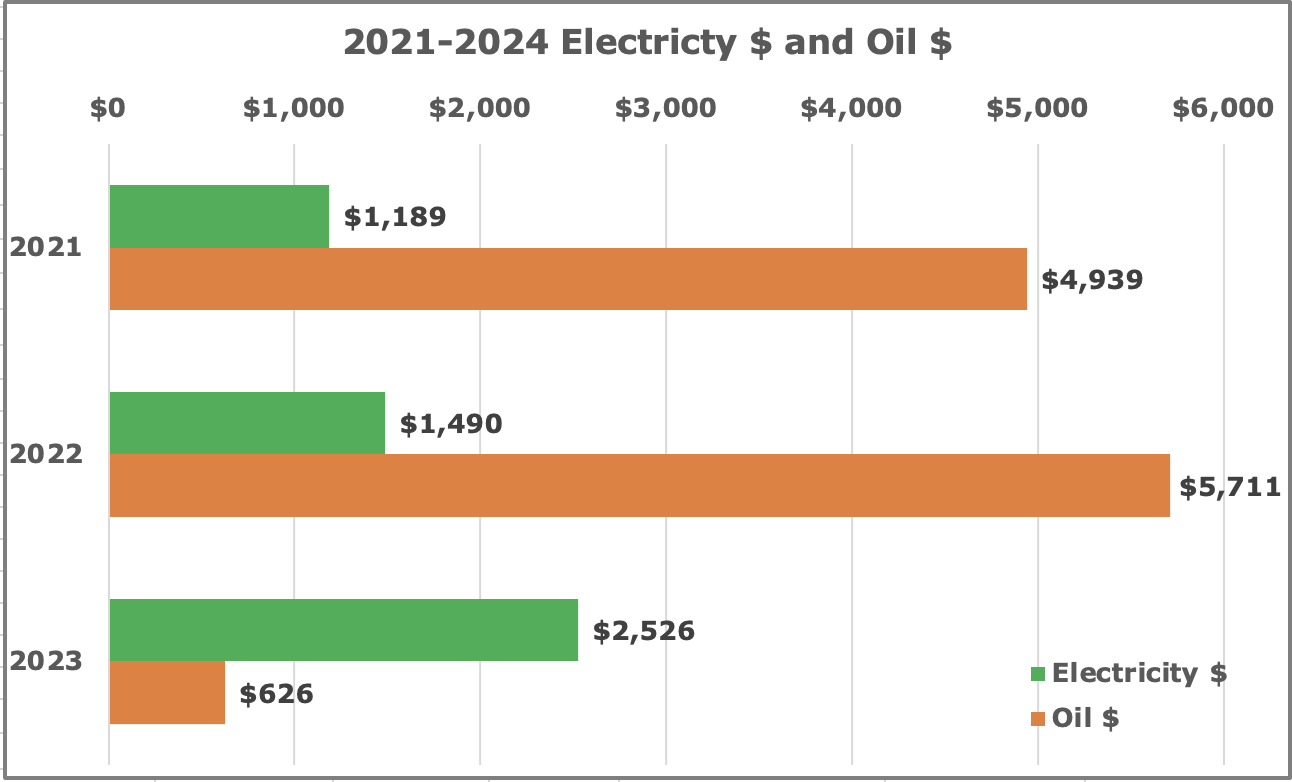
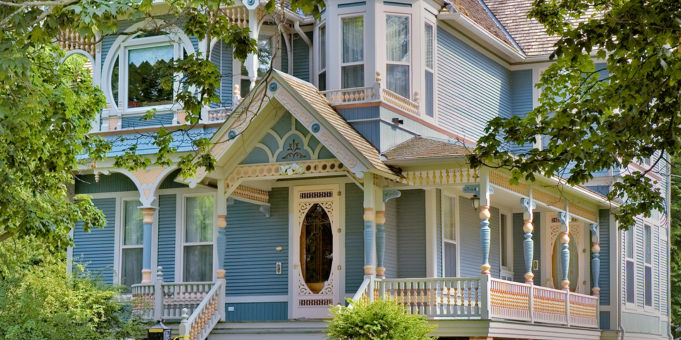
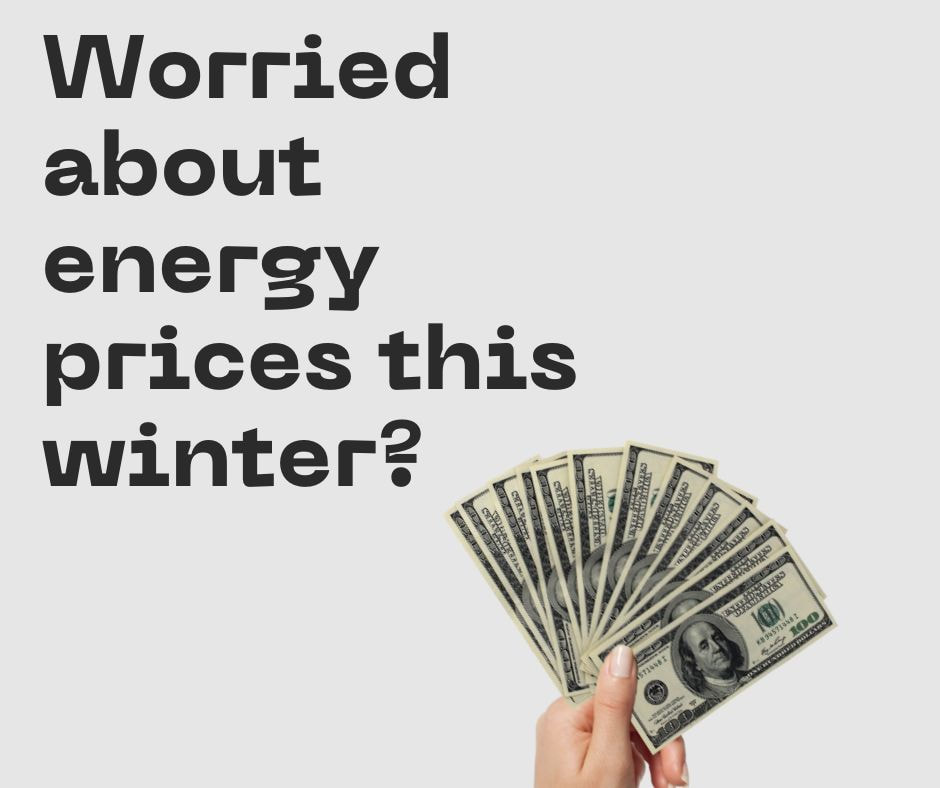
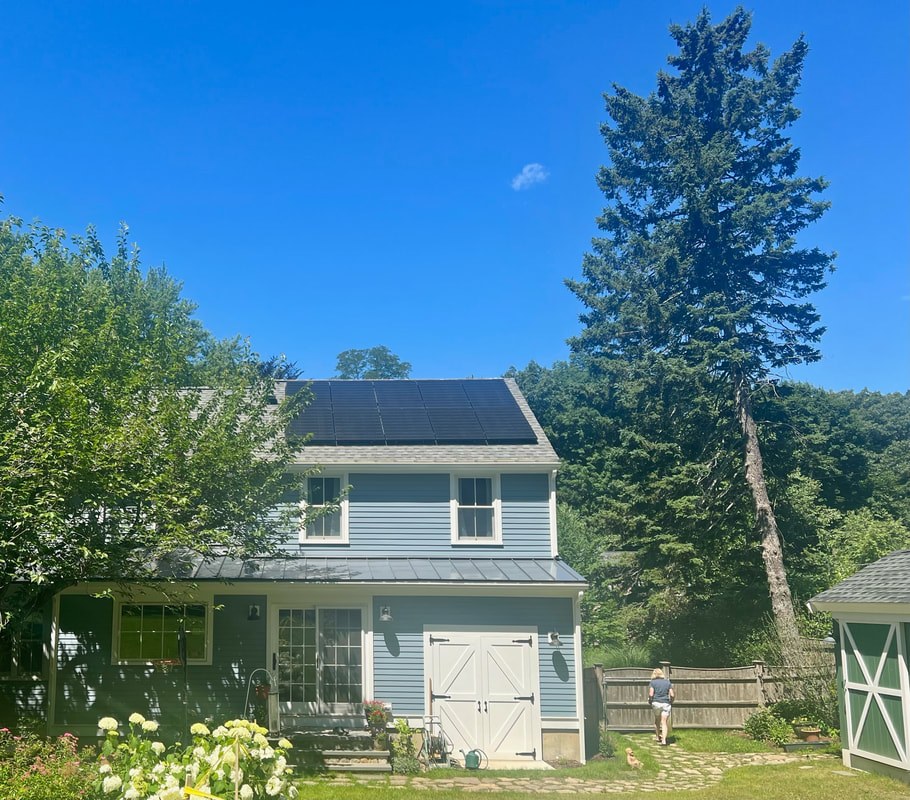
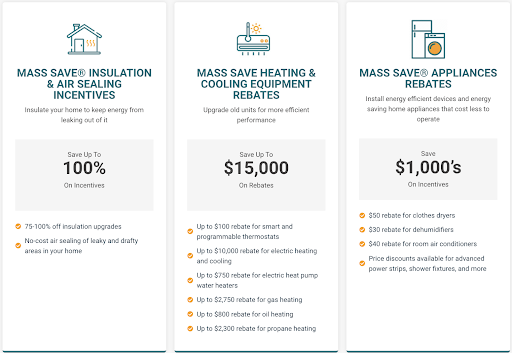
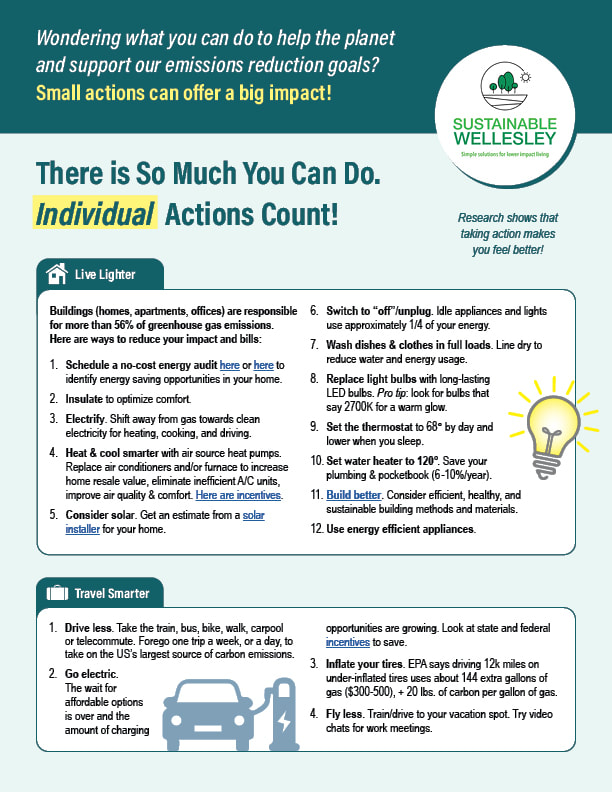

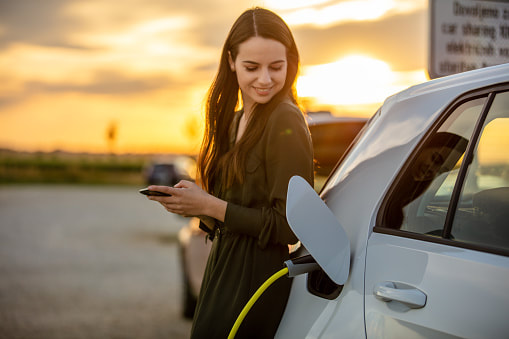
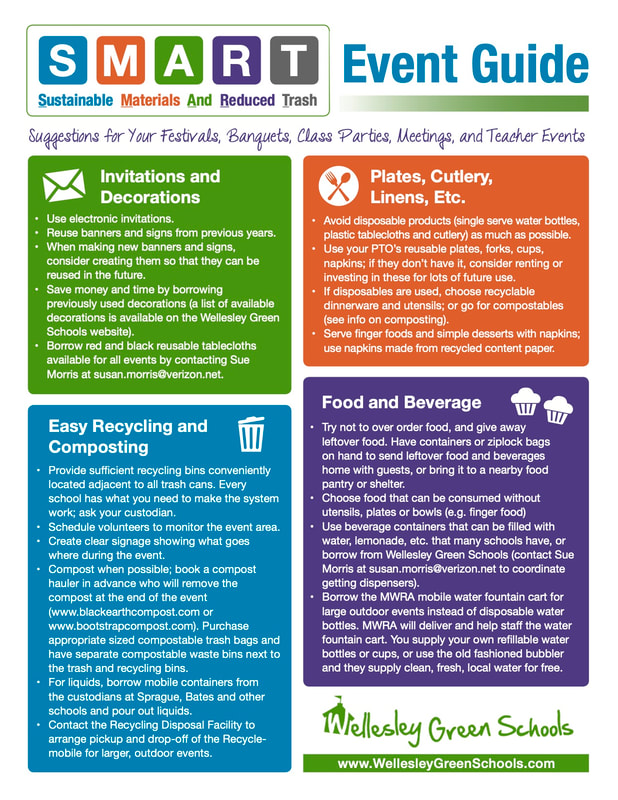
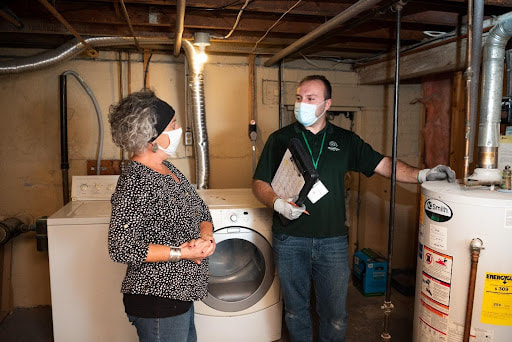
 RSS Feed
RSS Feed